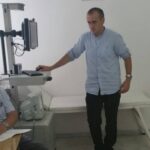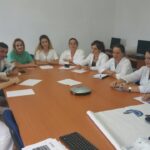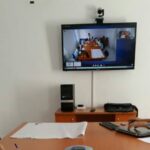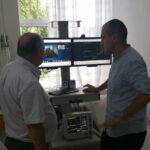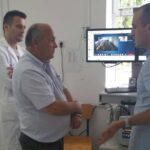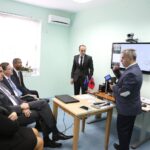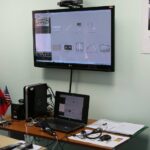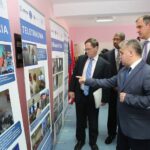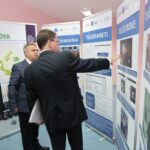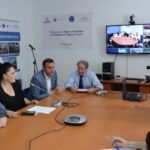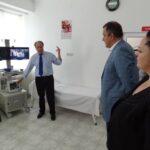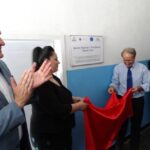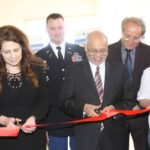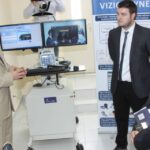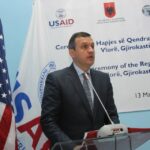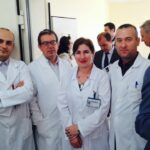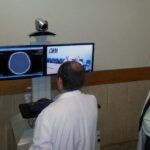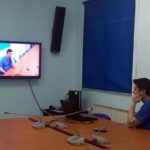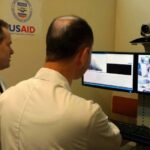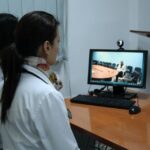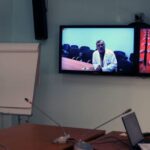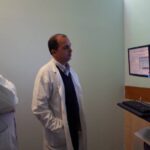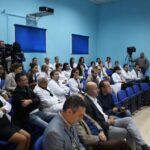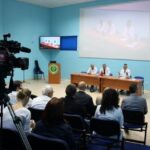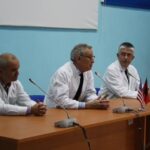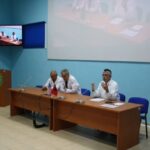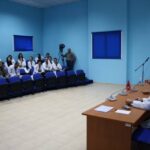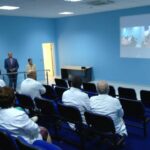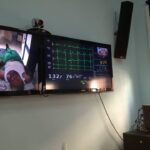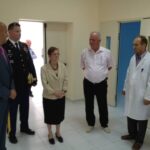Previous Activities
Here you can see all the previous activities of International Virtual e-Hospital Foundation
USAID Assistant Administrator Thomas O. Melia and Minister Beqaj visited Elbasan’s University Hospital to see how doctors are using telemedicine for patients. In 2016 based on evidence, in the last three years, 1385 medical cases representing more than 30 medical specialties have been performed through teleconsultations. The network has the potential to expand even to primary health care and integrate all levels of care in one Telemedicine system.
Telemedicine’s virtual educational program has been active since January 2012. In 2016 in addition to several weekly sessions for tertiary care hospitals (university hospitals), the virtual educational program also consisted of a biweekly lecture series of the Albanian Association of Nurses, as well as many other training events, such as lectures, seminars, and conferences. These programs are broadcast to all telemedicine centers in both Albania and Kosova, and often from many countries around the world.
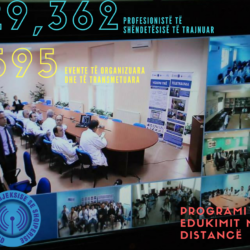
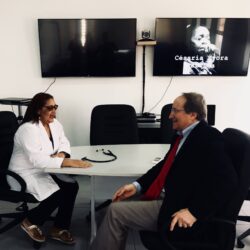
Introductory lecture of Pre-Hospital Management of Trauma and Critically Ill Patients in Hospital Baptista de Sousa, Mindelo, São Vicente Island. Through videoconference, the lecture has been attended by 100+ Cabo Verdean healthcare staff from 7 telemedicine centres on 6 islands of the archipelago. Project activity implemented by ITF Enhancing Human Security in cooperation with International Virtual e-Hospital Foundation and funds provided by the Slovenian Ministry of Foreign Affairs / Ministrstvo za zunanje zadeve RS.
On 14 July 2015, USAID, together with Albanian counterparts, inaugurated the final telemedicine center in Tropoja, thus marking the full Integrated Telemedicine and e-Health Network in Albania. The Bajram Curri Hospital staff now have access to teleconsultations and the opportunity to follow the accredited lectures organized at the national and international Telemedicine Network. Albania is ranked among the countries with the most complete telemedicine network which is integrated now in all public hospitals.
On July 28 in 2014, Dr. Erion Dasho, Vice President of the International Virtual e-Hospital (IVeH) for Europe and Africa and Program Coordinator Integrated Telemedicine and e-Health Program of Albania (ITeHP-A), attended the inauguration ceremony of the Integrated Telemedicine and e-Health Program for Cape Verde (ITeHP-CV) with the country’s Prime Minister José Maria Neves.
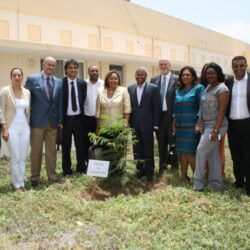
Albania’s telemedicine program, supported by USAID, is being viewed as a model to improve patient care and medical education in Africa. The National Telemedicine Center in Tirana has worked closely with officials and medical personnel in Cape Verde to establish a telemedicine network to connect hospitals across the country spanning an archipelago of 10 islands.
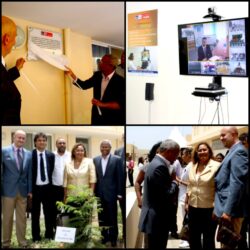
U.S. Ambassador Alexander Arvizu, and Albania’s Minister of Health, Ilir Beqaj, participated in the inauguration ceremony marking the completion of the renovation of the Telemedicine Center in the Vlora Regional Hospital. The center was renovated in the 2nd phase of a larger US European Command (EUCOM) project, which also includes renovations in the regional hospitals of Gjirokaster, Korce and Peshkopi.
In 2013 Albanian doctors and university professors met with counterparts in Kosova on World Stroke Day to discuss ways primary health care can help mitigate risks of stroke in their patients. The virtual meeting was made possible through the National Telemedicine Center, supported by USAID, and the Albanian Neurology and Neuro-Surgery Association.
In 2013, USAID- Washington’s Deputy Assistant Administrator, Patricia Rader, participated in a virtual meeting with doctors and USAID colleagues in Tirana from the newly renovated Telemedicine Center at the Regional Hospital in Vlora. Rader is visiting from Washington to learn how doctors are using the technology with patients to connect to specialist doctors in Tirana.

